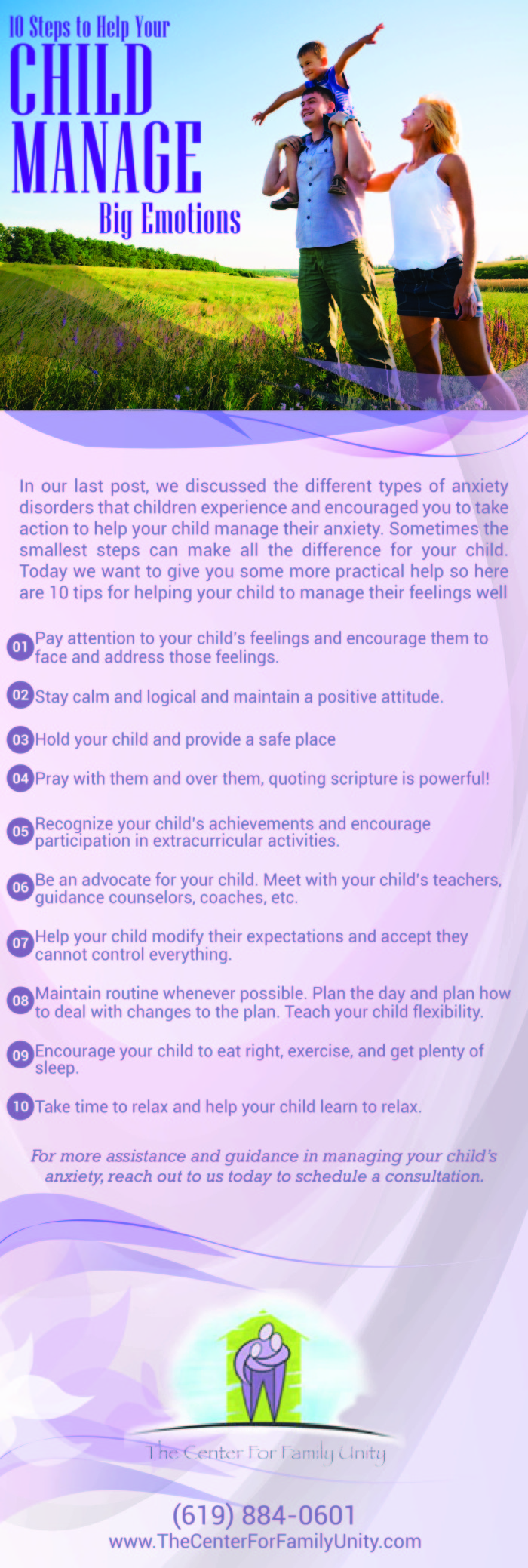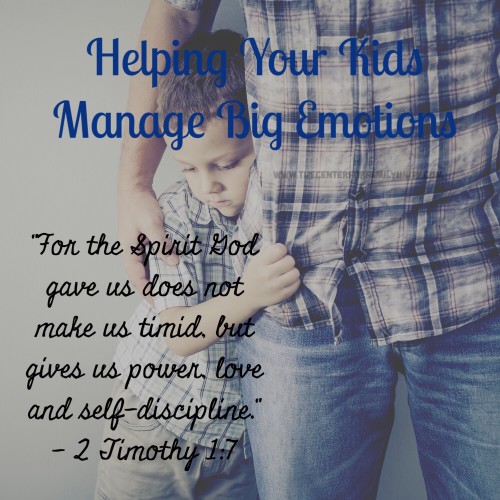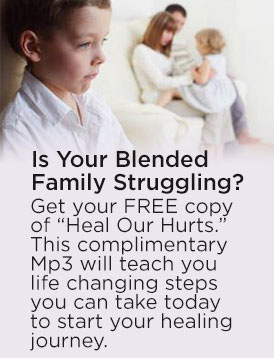by admin | Jul 14, 2016 | Uncategorized
Ken, a serious and long-time drinker, hadn’t been feeling good for a while and his wife insisted that he go to the doctor. With reluctance, he finally did. Upon examination, the doctor said, “Ken, if you don’t stop drinking, you’re going to die.” Of course, this upset Ken tremendously. When he came home to his wife, he was near tears. “Oh dear, what did the doctor say?” she asked. “He said I’m going to die,” Ken wailed.
Poor Ken. He didn’t really hear what the doctor said. He was practicing one of his chronic avoidant behaviors: selective listening. He heard only what he wanted to hear and shut the rest of the message out.
His wife, Stella, has her own set of behaviors that she uses in her attempts to keep from dealing with certain things in life. She tries to control everyone and everything. She’s the one who made the appointment for Ken in the first place.
Avoidant behaviors such as those exhibited by Ken and Stella are examples of the subtle and not-so-subtle methods people use to side-step issues and situations.
We avoid because something is at risk.
The impulse toward perfectionism, for example, says I don’t want to risk doing something if I can’t do it perfectly. “Forgetting” doctor’s appointments could mean being afraid to find out if something is really wrong.

Other types of avoidant behavior:
- Not returning phone calls
- Always being late
- Smiling or laughing it off when you’re angry
- Projecting (putting our own stuff on other people)
- Manipulating
- Getting sick frequently
- Losing or misplacing thing
- Over-sleeping
Such behaviors keep us safe within the confines of our fear even though we may not realize fear motivates our responses.
Unfortunately, these behaviors also push people away from us. While drinking, gambling, and doing drugs are some more obvious and destructive practices that affect our whole world, these more subtle aspects affect the quality of our relationships and ultimately block any true intimacy we might have.
Often, people aren’t aware they are using avoidant behaviors – especially if, like Ken and Stella, those close to them also engage in their own ways of not dealing directly with issues. We may be made aware only when someone has the courage to question certain practices: “Seems like every time I ask you to visit my family, you get a headache.” Or through a direct confrontation: after all those months you neglected to open your mail, the IRS placed a lien against your bank account. Or maybe life becomes so painful that we are drawn to look at our own footprints — failed relationships, jobs, finances, child rearing or even our health.
It takes courage to confront such practices — your own or those of someone you’re in relationship with. But one thing is certain about any avoidant behavior: like the IRS, it won’t go away on its own. If you or a loved one are experiencing any of the symptoms noted above, you need support to break free! Please call a counselor at The Center for Family Unity TODAY. Don’t wait. Your peace depends on it!!
The Center For Family Unity [email protected] 619-884-0601
by admin | May 25, 2016 | Uncategorized
Last month we talked about how to recognize anxiety disorders and help your child begin to manage their anxiety. This month we want to dig deeper. Here are 10 practical steps you can take to help your child manage their emotions.

by admin | Apr 26, 2016 | Uncategorized
Anxiety Disorders can be a true hindrance in a child’s home and school life. A child may become so distressed and uncomfortable that they begin to avoid activities and/or social situations. When a child experiences a major life change (what may seem major for a child is different than for adults), the foundations of their world are shaken. They can’t go shopping, meet a friend for a cup of coffee or schedule their own counseling appointments.
Our children depend on US to help them discover coping mechanisms. Anxiety is fear-based but God’s perfect love casts out ALL fear! The answer is our dependence on the Lord and our relationship with HIM. Our children depend on us to lead them through this process of depending on the Lord.
Here are some of the Signs and Symptoms of Childhood Anxiety:
- Clinginess
- Impulsiveness
- Irritability
- Distractedness
- Concentration or Focus issues
- Nervous movements or twitches
- Jitteriness
- Sleep problems
- Restlessness
- Sweaty hands
- Accelerated heart rate and breathing
- Nausea
- Headaches
- Stomachaches
- Excessive worrying
These symptoms can significantly affect a child’s daily life. It can lead to poor school performance, a lack of socializing, and significant discord in the household. The good news is that pediatricians and psychotherapists understand anxiety disorders and can provide treatment, educate parents, and help children feel better.

It is extremely common for anxious children to avoid talking about how they feel. They may worry that their parents won’t understand or they may fear being judged. This can lead to many children with Anxiety feeling alone or misunderstood.
Parents of anxious children have reported that they knew there was something different about their child, but did not realize it was an anxiety problem. Some parents wait for their child to “grow out of it” while others view the anxious behaviors as normal. As a result, parents of anxious children and teens often feel confused about what to do, as well as frustrated, and overwhelmed. Education is essential for parents.
Anxiety Disorders are believed to be a combination of biological and environmental factors. Stressful events may trigger anxiety but stress alone is not the cause of an Anxiety Disorder.
There are different types of Anxiety Disorders including Generalized Anxiety Disorder, Panic Disorder, Obsessive-Compulsive Disorder, Post-Traumatic Stress Disorder, Separation Anxiety Disorder, Selective Mutism, Social Anxiety Disorder, and Phobias.
- Generalized Anxiety Disorder (GAD)
A child with GAD will worry excessively about a variety of things, strive for perfection, and seek constant approval.
- Obsessive-Compulsive Disorder (OCD)
A child with OCD may experience unwanted and intrusive thoughts (obsessions) or feel compelled to preform rituals (compulsions) in order to reduce anxiety.
A child with an intense and irrational fear of strangers, heights, darkness, flying, animals, blood, insects, or being left alone. Children may often begin to fear a specific object or situation after having an upsetting or traumatic experience, such as a dog bite or a car accident.
- Separation Anxiety Disorder
Children, most commonly 7-9 years old, who experience significant anxiety when separated from parents and are extremely homesick. These children typically refuse to have sleepovers and may even refuse to attend school.
A child that has intense fear of social or performance situations and activities. Social Anxiety can significantly impact academic achievement.
Separation Anxiety is extremely common in younger children, whereas adolescents tend to experience Social Anxiety.
If you review the disorders above you will notice threads of FEAR and feeling out of control.
Keep in mind that your child’s Anxiety disorder is not a sign of poor parenting. Anxiety can be successfully managed. Parents play a key role in helping their children manage their Anxiety. When coping skills and positive behaviors are rewarded and practiced in the home, children and teens can learn to face their fears, take reasonable risks, and ultimately gain confidence. Tools are important, however FEAR is a spiritual matter.
Here are a few verses from God’s Playbook of Life. Helping your children recite these gives them POWER and PROTECTION (remember it’s the sword of the Spirit in our armor):
Psalm 118:6
“The LORD is with me; I will not be afraid. What can mere mortals do to me?”
2 Timothy 1:7
“For the Spirit God gave us does not make us timid, but gives us power, love and self-discipline.”
I John 4:18
“There is no fear in love. But perfect love drives out fear, because fear has to do with punishment. The one who fears is not made perfect in love.”
Parents can help their children develop the appropriate skills and confidence to overcome their fears and anxieties. Children with anxiety can lead a full and happy life.
For help with your anxious child please call The Center for Family Unity, we specialize in helping you and your children 619-884-0601 www.TheCenterforFamilyUnity.com
by admin | Apr 12, 2016 | Uncategorized
As caregivers, we are often stressed and don’t know why. Without realizing the effects that life circumstances have on us, we tend to sweep our feelings of frustration, sadness and turmoil under the rug.
In the past 12 to 24 months, which of the following major life events have taken place in your life? Mark down the points for each event that you have experienced recently.
When you’re done, add up the points for each event and check your score at the bottom.
_____ Death of Spouse (100 points)
_____ Divorce (73 points)
_____ Marital Separation or from relationship partner (65 points)
_____ Jail Term (63 points)
_____ Death of close family member (63 points)
_____ Personal injury or illness (53 points)
_____ Marriage (50 points)
_____ Fired from work (47 points)
_____ Marital reconciliation (45 points)
_____ Retirement (45 points)
_____ Change in family member’s health (44 points)
_____ Pregnancy (40 points)
_____ Sex difficulties (39 points)
_____ Addition to family (39 points)
_____ Business readjustment (39 points)
_____ Change in financial status (38 points)
_____ Death of close friend (37 points)
_____ Change to a different line of work (36 points)
_____ Change in frequency of marital arguments (35 points)
_____ Mortgage or loan over $30,000 (31 points)
_____ Foreclosure of mortgage or loan (30 points)
_____ Change in work responsibilities (29 points)
_____ Trouble with in-laws (29 points)
_____ Outstanding personal achievement (28 points)
_____ Spouse begins or stops work (26 points)
_____ Starting or finishing school (26 points)
_____ Change in living conditions (25 points)
_____ Revision of personal habits (24 points)
_____ Trouble with boss (23 points)
_____ Change in work hours, conditions (20 points)
_____ Change in residence (20 points)
_____ Change in schools (20 points)
_____ Change in recreational habits (19 points)
_____ Change in church activities (19 points)
_____ Change in social activities (18 points)
_____ Mortgage or loan under $20,000 (17 points)
_____ Change in sleeping habits (16 points)
_____ Change in number of family gatherings (15 points)
_____ Change in eating habits (15 points)
_____ Vacation (13 points)
_____ Christmas season (12 points)
_____ Minor violations of the law (11 points)
_____ Your Total Score
This scale shows the kind of life pressure that you are facing. Depending on your coping skills or the lack thereof, this scale can predict the likelihood that you will fall victim to a stress-related illness. The illness could include mild symptoms such as frequent tension headaches, acid indigestion and loss of sleep and can also include very serious illness such as ulcers, cancer, migraines and the like. Compare your score to the numbers below to see how at risk you are for experiencing stress-related illness.

LIFE STRESS SCORE
0-149: Low susceptibility to stress-related illness
150-299: Medium susceptibility to stress-related illness: Learn and practice relaxation and stress management skills and a healthy well life style.
300 and over: High susceptibility to stress-related illness: Daily practice of relaxation skills is very important for your wellness. Take care of it now before a serious illness erupts or an affliction becomes worse.
At The Center for Family Unity, we specialize in therapy from a holistic approach; mind, heart, spirit AND body. Contact us today and experience a truly unique and unparalleled experience to wellness.
619-884-0601 [email protected]
by admin | Apr 1, 2016 | Children Therapy, Christian Counseling, Family Counseling
Family life today is under siege. Families are beset by divorce, confusion in roles, absentee parents, a breakdown of authority, preoccupation with things, inadequate time together, financial pressures, and a host of other problems. The Bible teaches that the institution of family is of divine origin and purpose. The Bible also provides guidelines for good relations within the family. A commitment to the Bible’s teachings and principles provides today’s best hope for the recovery of family life.
The family is the nest from which our children grow and learn to fly.
There is an abundance of truth in the Word of God about what loving our children should look like. There are many good books formulated from biblical perspective but when it comes down to it, the Bible is our manual. How often do we go straight to the source rather than turning to a friend or a self-help book?

Here is what the Bible says about family:
The Family Is Divine in Origin: “Then God said, ‘Let Us make man in Our image, according to Our likeness… So God created man in His own image; He created him in the image of God; He created them male and female” (Genesis 1:26-27).
The Family Is Divine in Purpose: “These words that I am giving you today are to be in your heart. Repeat them to your children. Talk about them when you sit in your house and when you walk along the road, when you lie down and when you get up.” (Deuteronomy 6:6-7).
Parents must train children: “Teach a youth about the way he should go; even when he is old he will not depart from it.” (Proverbs 22:6)
Children need loving discipline: “And fathers, don’t stir up anger in your children, but bring them up in the training and instruction of the Lord.” (Ephesians 6:4)
Children need a worthy example: “…clearly recalling your sincere faith that first lived in your grandmother Lois, then in your mother Eunice, and that I am convinced is in you also” (2 Timothy 1:5).
God created the family, and He has divine purposes for it. Following His purposes for marriage and family life gives us the best opportunities for fulfillment.
As women, as wives and moms, the greatest power we have is pray. Pray the word over your home and your family today. Make it a priority and set aside time to pray alone and with your spouse. Today I pray a hedge of protection around you and your family. If you need more guidance through this process reach out to us now! We’re here to help!
The Center For Family Unity [email protected] 619-884-0601













